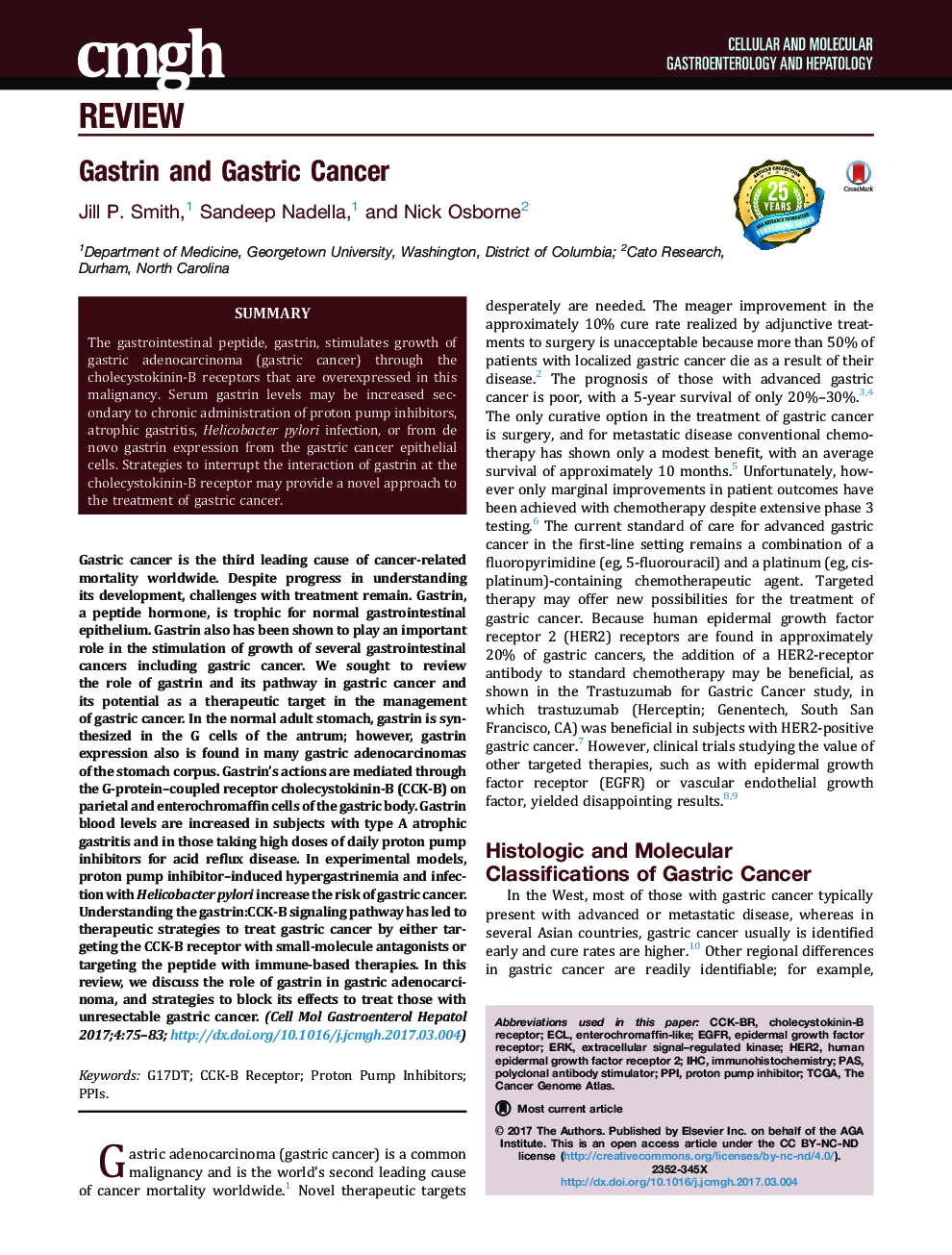| Article ID | Journal | Published Year | Pages | File Type |
|---|---|---|---|---|
| 5517180 | CMGH Cellular and Molecular Gastroenterology and Hepatology | 2017 | 9 Pages |
Gastric cancer is the third leading cause of cancer-related mortality worldwide. Despite progress in understanding its development, challenges with treatment remain. Gastrin, a peptide hormone, is trophic for normal gastrointestinal epithelium. Gastrin also has been shown to play an important role in the stimulation of growth of several gastrointestinal cancers including gastric cancer. We sought to review the role of gastrin and its pathway in gastric cancer and its potential as a therapeutic target in the management of gastric cancer. In the normal adult stomach, gastrin is synthesized in the G cells of the antrum; however, gastrin expression also is found in many gastric adenocarcinomas of the stomach corpus. Gastrin's actions are mediated through the G-protein-coupled receptor cholecystokinin-B (CCK-B) on parietal and enterochromaffin cells of the gastric body. Gastrin blood levels are increased in subjects with type A atrophic gastritis and in those taking high doses of daily proton pump inhibitors for acid reflux disease. In experimental models, proton pump inhibitor-induced hypergastrinemia and infection with Helicobacter pylori increase the risk of gastric cancer. Understanding the gastrin:CCK-B signaling pathway has led to therapeutic strategies to treat gastric cancer by either targeting the CCK-B receptor with small-molecule antagonists or targeting the peptide with immune-based therapies. In this review, we discuss the role of gastrin in gastric adenocarcinoma, and strategies to block its effects to treat those with unresectable gastric cancer.
